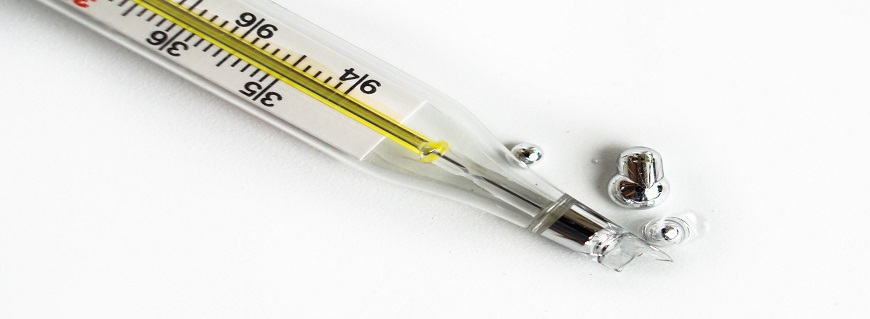
Mercury is dangerous to your health. Need to know how to dispose of mercury? Call the Household Chemical Waste Line: (914) 813-5425, and learn how to dispose of items containing mercury in Westchester.
Mercury is naturally-occurring and has several forms - metallic, inorganic and organic. The most common form is the shiny, silver-white metal that is called metallic mercury, or simply, mercury. It is a liquid at room temperature, easily breaks up into many small droplets and evaporates to form mercury vapor, a colorless and odorless gas, which is very dangerous if inhaled.
Mercury has many uses including measuring temperature in thermometers and pressure in barometers and blood pressure units, and in batteries, electrical switches, and mercury vapor lamps, including fluorescent bulbs.
Some groups in Latin American and Caribbean cultures use mercury called azogue or vi dajan in religious rituals. These cultural, medicinal and religious uses of mercury can lead to mercury exposure and the possibility of health effects.
Exposure to mercury may result from breathing air contaminated by mercury vapor, from skin absorption when handling mercury liquid, or by eating contaminated foods or drinking contaminated liquids.
Exposure to sufficiently high levels of mercury can cause permanent damage to the nervous system, brain, kidneys and a developing fetus. Mercury affects many different brain functions and a variety of symptoms may occur. These include tremors, loss of sensation and difficulties with memory, and irritability. In addition, skin rashes, eye irritation, and changes in kidney function can occur.
Health effects of exposure to mercury are most often caused by breathing large amounts of mercury vapor. However, long-term exposure to lower levels of mercury vapor can also cause health effects. After a spill, tiny droplets of mercury can become trapped in cracks, crevices, fabrics and rugs, and can continue to release mercury vapor. To prevent continued exposure, every spill of mercury requires a thorough clean-up by a professional. Do not use a vacuum cleaner to clean up a mercury spill. A vacuum cleaner will spread the mercury vapors into the air.
View Westchester County Law, Article XX, Chapter 863 banning the use and sale of certain products containing mercury.
What can you do?
Mercury fever thermometers are a significant source of mercury to the environment, and if a broken mercury thermometer isn't cleaned up properly, the mercury can get into the air and pose a health risk in the user's home. There are several good, environmentally-friendly alternatives to mercury thermometers. These include:
- digital electronic thermometers
- ear canal thermometers
- flexible forehead thermometers
After replacing your mercury fever thermometers with a safer alternative, call the Household Chemical Waste Line at (914) 813-5425 to find out how to safely discard your mercury thermometer. Do not simply throw it away in your garbage.
What to do in case of a Mercury Spill?
- Contact the local poison control center, fire department, or public health board for advice on cleanup.
- Ask everyone to leave the area.
- DO NOT use a vacuum cleaner to clean up a mercury spill. A vacuum cleaner will spread the mercury vapors into the air.
- DO NOT get mercury on your skin.
- Open windows and doors in the area of the spill to ventilate the area during cleanup.
- Small amounts of spilled mercury, such as a broken thermometer, can be picked up by carefully rolling the mercury onto a sheet of paper using disposable gloves; put the mercury into an airtight container or bag for disposal.
- Close the room off from the rest of the house, open the windows and use fans for at least one hour to get the vapors out.
- For larger amounts of spilled mercury than the one gram or one mililiter found in an old fever thermometer, do not try to clean the spill yourself. Call the Westchester County Department of Health at (914) 813-5000 or your local Fire Department.
Mercury Materials for Schools
Resources
- Guidelines for Cleanup of Mercury Spills (NYSDOH)
- Handling Broken Fluorescent Lamps Containing Mercury (NYSDOH)
- What to do if a CFL Light Bulb Breaks (EPA)
- Mercury contamination in fish (NRDC)
- Mercury and Fish Brochure - Advice for woman who might become pregnant, woman who are pregnant, nursing mothers and young children.
- Chemicals in Sportfish and Game - New York State Department of Health
- Hudson River Health Advice on Eating Sportfish (NYSDOH)
- Mercurio Azogue FAQ en Español (Medline)
- U.S. Environmental Protection Agency
